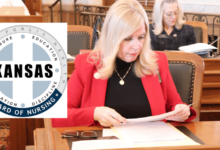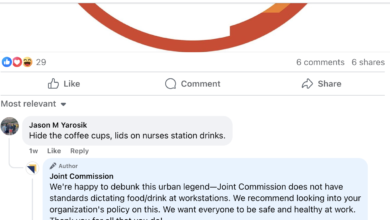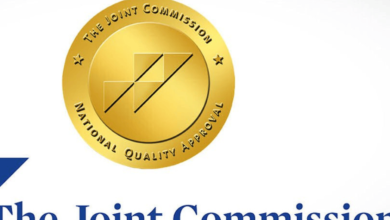Striking Northern Irish midwife says staff ‘deserve more’

“We work extremely hard – pay us what we deserve”: This is the message one senior Northern Ireland midwife wants to deliver to politicians and leaders as she prepares to step back out on the picket line.
Catherine Spence, maternity sister at Antrim Area Hospital and a member of the Royal College of Midwives (RCM), is due to take part in a public sector day of industrial action on 18 January 2024.
“They go above and beyond to care for their women and their families”
Catherine Spence
The strikes have been organised in protest of the ongoing lack of a 2023-24 pay deal for nurses, midwives and other public sector workers in Northern Ireland.
It comes as the country has been operating for almost two years without political leadership amid a Democratic Unionist Party boycott of Stormont in defiance of Brexit policies.
The situation means the pay of nursing and midwifery staff in Northern Ireland has fallen behind that of their counterparts in the other UK countries.
The UK Government has recently offered Northern Ireland a £3bn financial package, including up to £584m for a public sector pay deal, if and when Stormont is restored.
In an interview with Nursing Times, Ms Spence said Northern Irish health workers were choosing to work in other countries both in the UK and abroad for better pay.
She said midwives would not opt to strike lightly, but with current pay levels and cost-of-living rises, staff were struggling to afford essentials and were exhausted from taking on extra shifts.
“We preserve the safety of our mommies and our babies at every opportunity,” said Ms Spence, who has been a midwife for seven years.
“For us to actually think ‘we’re going to strike’, it’s a really big deal for midwives to actually take that step, because we don’t do it easily.
“The same with nurses, we just don’t. It’s not bred in us to do that.
“We are in healthcare for a reason, we want to look after people, we want to make it safe, we want to give the women and their babies everything that we have. That’s what we go into work for. That’s why we love our jobs.
“But it’s so demoralising to think that somebody else is getting paid more than us to do the exact same job, to face the exact same pressures.”

Catherine Spence
She said there had been a welcome increase in midwives being trained in Northern Ireland, but that services were still currently understaffed and those in post were getting burnt out.
“They’re working so hard, they’re doing extra hours because they need the money, they need the money to pay for things,” added Ms Spence.
“No one wants to do all those extra hours, but they are covering for their friends who are not well; they’re having to pay for childcare, so they are doing extra hours to get that money to pay for it.
“But they are burnt out and our sickness levels at the minute… are quite high. We’re still relying quite a lot on retired bank midwives to come in and support.”
Midwifery staff were “feeling undervalued” and some were moving to countries like Australia and Qatar to work, as well as the other UK countries, she said.
“My team are amazing, the girls who I work with are an absolute credit to themselves. They go above and beyond to care for their women and their families,” Ms Spence added.
“But they’re tired, they’re undervalued and they’re underpaid, and that’s really the crux of it.”
Ms Spence, who also went out on strike in September, called on local politicians to “go back into the assembly and look at what it is that has been offered by the British government”.
The 18 January 2024 day of industrial action coincides with a deadline for when an executive must be formed in Northern Ireland, or an assembly election will be called.
Ms Spence urged Health and Social Care (HSC) staff to write to their members of the legislative assembly (MLAs) to ask what they plan to do to help restore pay parity.
She added: “I don’t want to see colleagues crying and trying to figure out how they’re going to afford that mortgage payment or afford to put petrol in their car or heat the house.
“Nobody wants that anymore. And pay parity will help at least part of that, just a bit of that.
“But pay us what we deserve, we work extremely hard, we really do, and we deserve so much more at this moment in time.”
The day of industrial action, which falls on a Thursday, is being overseen by the Irish Congress of Trade Unions and at least 12 unions are due to take part.
These include the RCM, Unison, GMB, Unite, Society of Radiographers, Northern Ireland Public Service Alliance and NASUWT, The Teachers’ Union.







